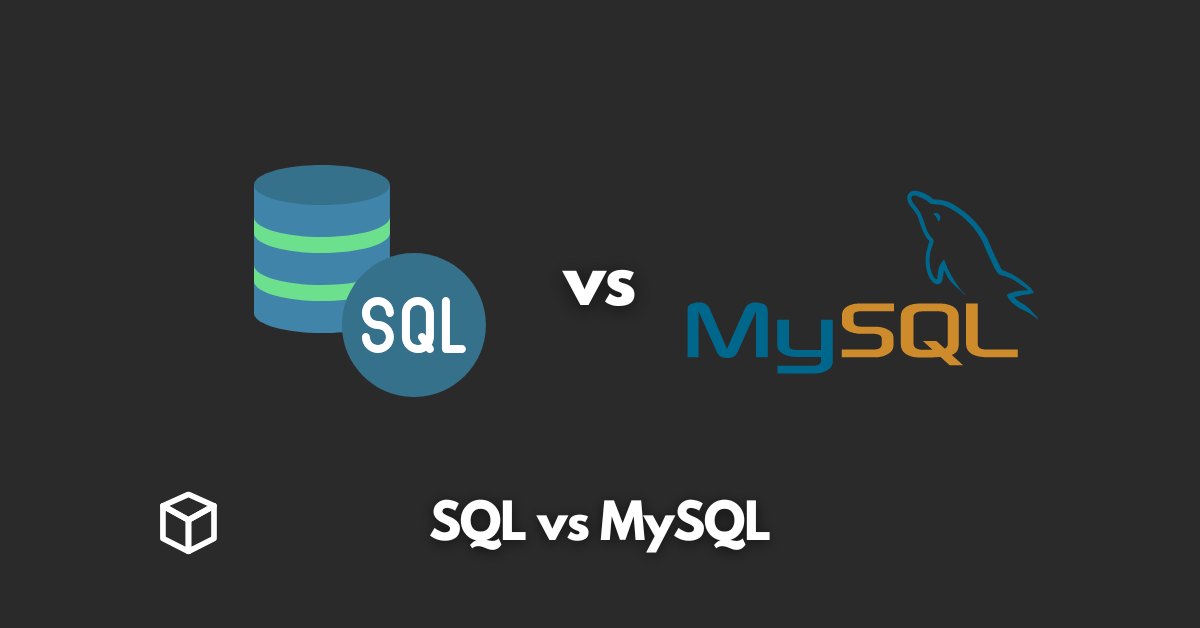SQL, or Structured Query Language, and MySQL are both technologies used in the world of databases and data management.
However, despite their similarities, there are important differences between the two that developers and businesses should be aware of when choosing the right technology for their needs.
SQL: Definition and Overview
SQL is a programming language used for managing and manipulating data in relational databases.
It is used for inserting, updating, and querying data, as well as creating and modifying database structures.
SQL is a standard language that is used by many different relational database management systems (RDBMS), including MySQL, Oracle, and Microsoft SQL Server.
SQL has a long history, with its development dating back to the 1970s.
Over the years, it has evolved and expanded, but its core principles and syntax remain largely unchanged.
Today, SQL is widely used in a variety of industries, including finance, healthcare, and e-commerce, to name just a few.
MySQL: Definition and Overview
MySQL is a popular open-source relational database management system (RDBMS) that uses SQL as its primary programming language.
It was developed by MySQL AB in the 1990s and is now owned by Oracle Corporation.
MySQL is known for its reliability, ease of use, and performance, making it a popular choice for web applications, small and medium-sized businesses, and other organizations.
MySQL can be used on a variety of platforms, including Windows, Linux, and macOS. It also supports a wide range of programming languages, including PHP, Python, and Java.
Comparison to Other Relational Databases
MySQL is just one of many relational databases available on the market, but it is considered one of the most popular.
Other popular relational databases include PostgreSQL, Oracle, and Microsoft SQL Server.
Each of these databases has its own strengths and weaknesses, and the best choice will depend on the specific needs of the project.
For example, PostgreSQL is known for its advanced features and support for complex data types, while Oracle is often used for large-scale enterprise projects.
Microsoft SQL Server is often used in conjunction with the Microsoft technology stack, such as the .NET framework.
Differences between SQL and MySQL
While SQL and MySQL are both used for managing and manipulating data in relational databases, there are some key differences between the two. The main differences include:
- Syntax: SQL is a standard language, while MySQL has its own set of proprietary extensions to the SQL language.
- Performance: MySQL is known for its high performance and scalability, which makes it a good choice for large-scale projects.
- Scalability: MySQL can be scaled up to handle large amounts of data and high traffic.
- Security: MySQL has a number of built-in security features, such as password encryption and access controls.
Which One to Choose?
When choosing between SQL and MySQL, it’s important to consider the specific needs of the project.
Both technologies have their own strengths and weaknesses, and the best choice will depend on the size, scale, and complexity of the project.
For small to medium-sized projects, MySQL is often a good choice due to its ease of use, reliability, and performance.
For large-scale, enterprise projects, other relational databases such as Oracle or Microsoft SQL Server may be more appropriate.
Conclusion
In conclusion, SQL and MySQL are both powerful technologies used for managing and manipulating data in relational databases.
While they have similarities, they also have key differences in syntax, performance, scalability, and security.
The best choice will depend on the specific needs of the project,and it’s important to carefully evaluate the pros and cons of each technology before making a decision.
If you’re unsure which technology is right for your project, it may be helpful to consult with a database expert or developer who can provide guidance and advice.
In addition, it’s also important to consider the ongoing maintenance and support for the technology you choose.
References
- SQL – Wikipedia (https://en.wikipedia.org/wiki/SQL)
- MySQL – Wikipedia (https://en.wikipedia.org/wiki/MySQL)
- Comparison of relational database management systems – Wikipedia (https://en.wikipedia.org/wiki/Comparison_of_relational_database_management_systems)




